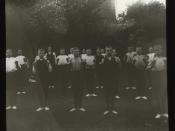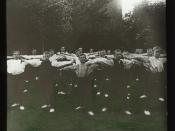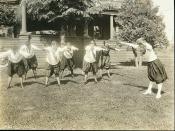There are differences in those who work out and those who do not.
Besides the obvious physical attributes, there are health and behavioral issues involved as well. People who work out are generally healthier and may live longer.
People who have worked out for a few months have different physical attributes than many who do not. Those who exercise may have notable muscle definition or mass.
These people are in and out of the gym as often as you indulge in unhealthy food. Some of the people that work out a great amount are often short, not necessarily overweight. These people may be athletes of some sort.
Exercise has a tremendous impact on health. Exercise can strengthen the lungs, heart, and other muscles. This in term allows you to have better health and live longer. By strengthening the heart, you allow it to more efficiently do its job. This heart of yours beats for many years and should not be weak.
A fair assumption can be made that someone who works out knows how to eat as well.
There are behavioral advantages as well. Exercise can reduce or eliminate stress, depression, and eliminate weakness in your immune system. Without the aforementioned, you will definitely feel different. Individuals who do not exercise face decreased productivity and social stigmatization. Exercising can relieve anxiety and improve your overall mood.
These are the major differences with those who exercise and those who do not.
An increased life expectancy, good mood, and stronger body are some of the fruits of their labor. Minor activities can improve health drastically when you are geriatric.
Exercise is very helpful for damaged limbs, old age, mental health, and in the prevention of atrophy. Every man or woman can spare ten to fifteen minutes a day doing this overly rewarding...


